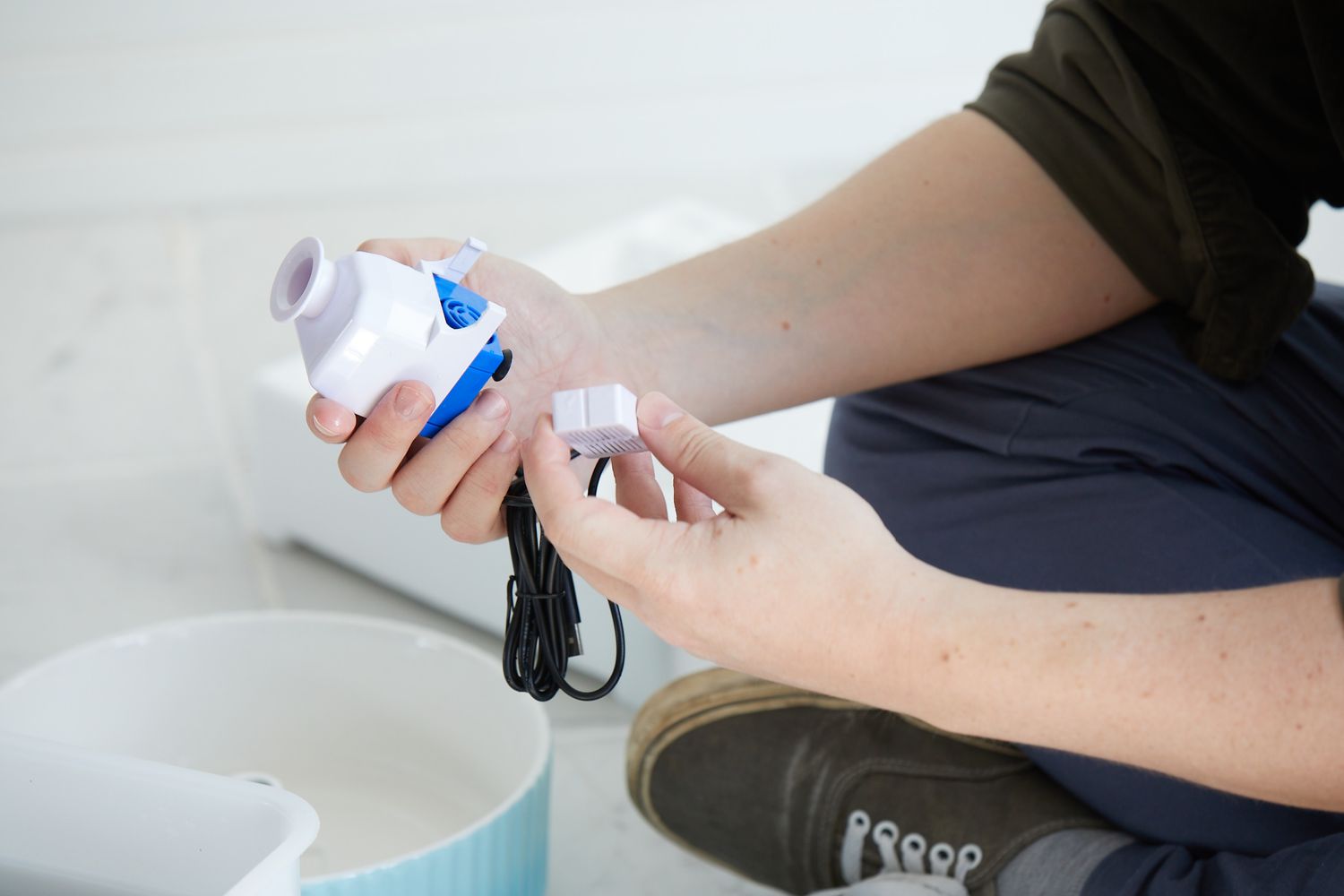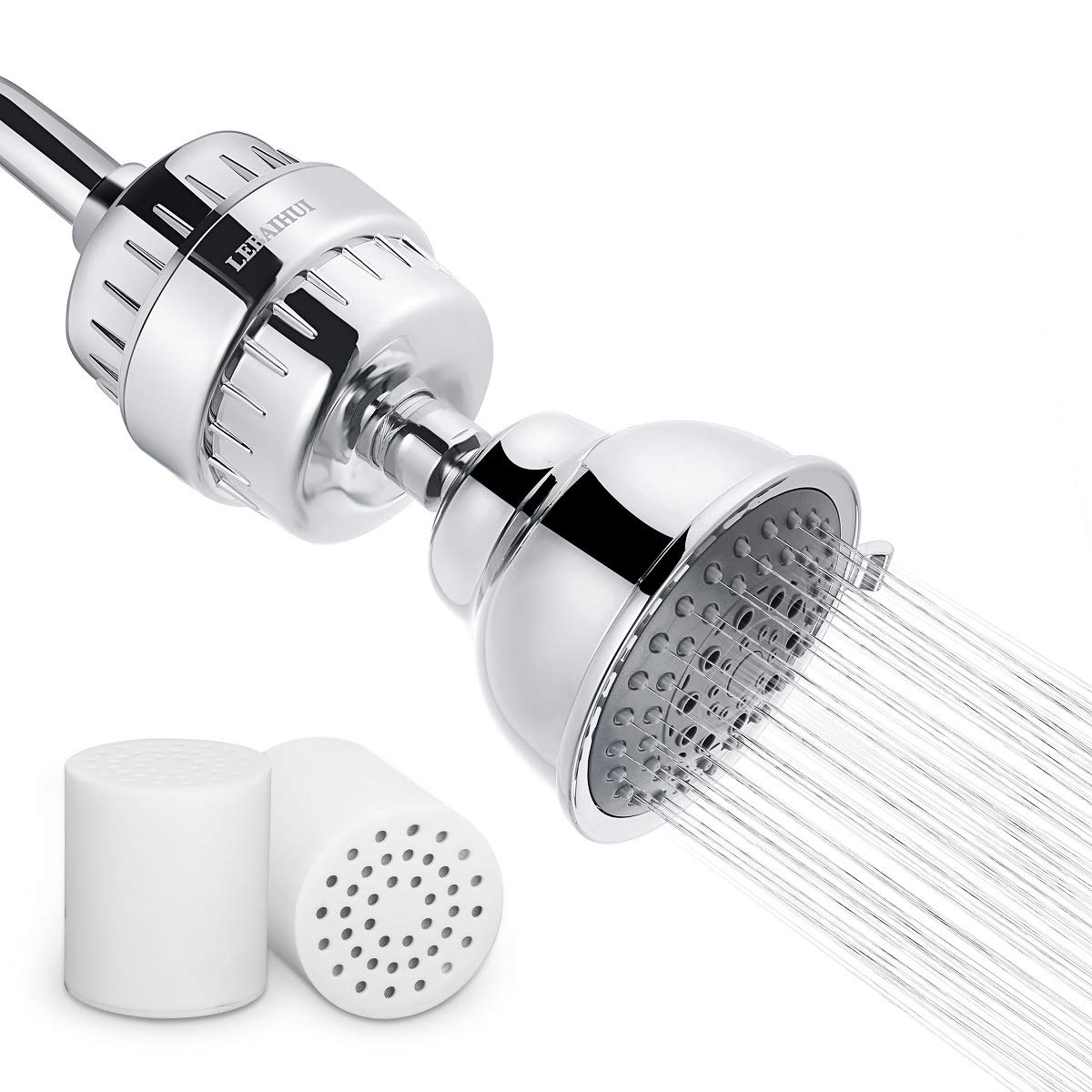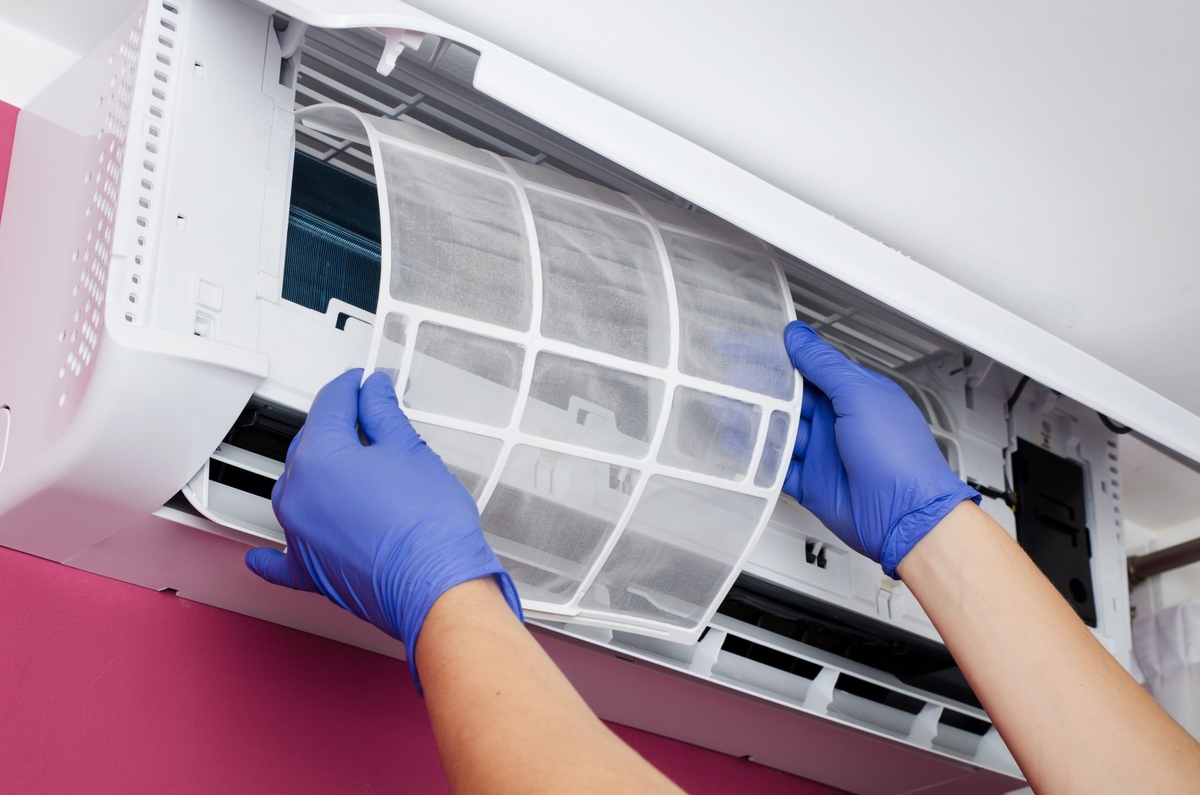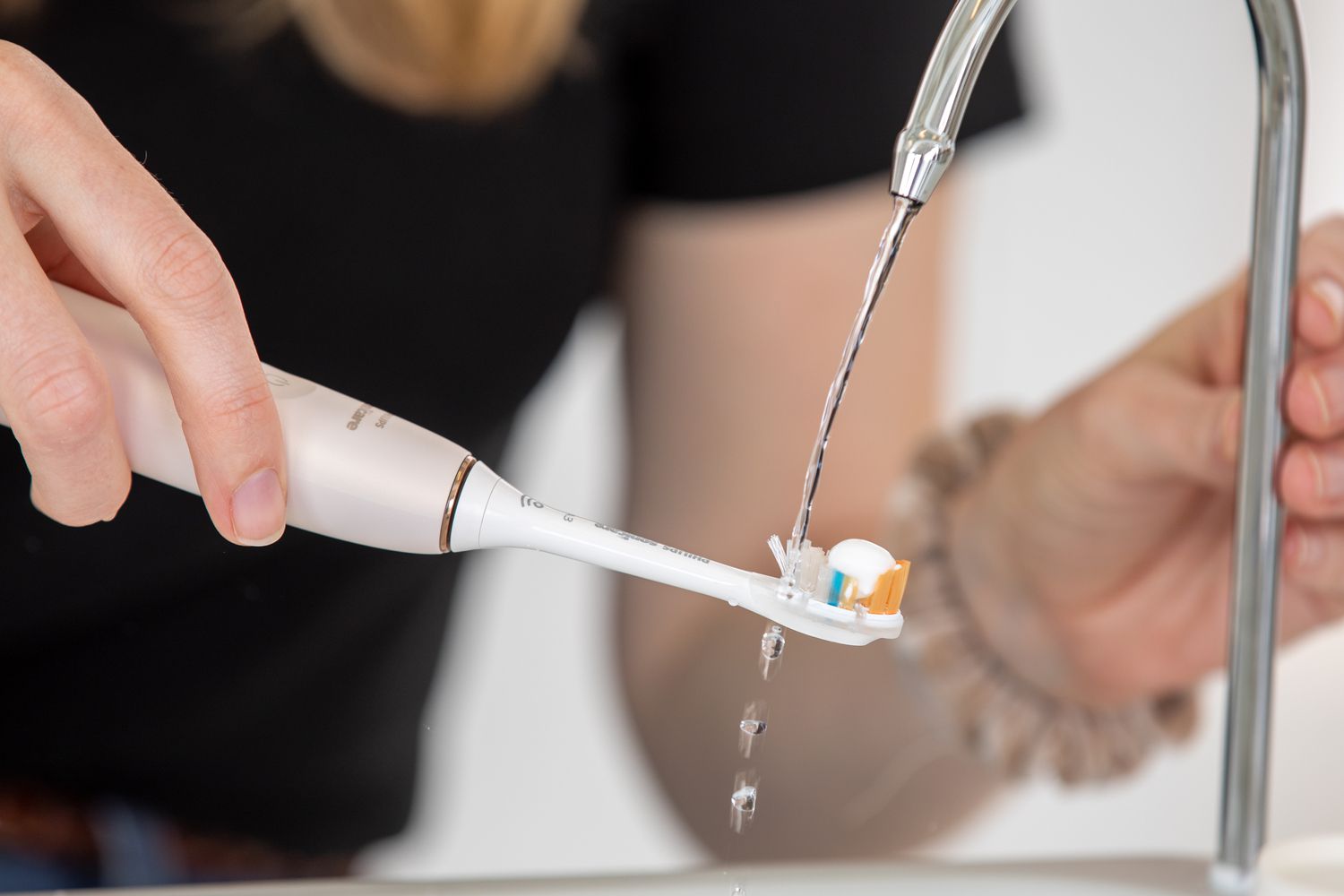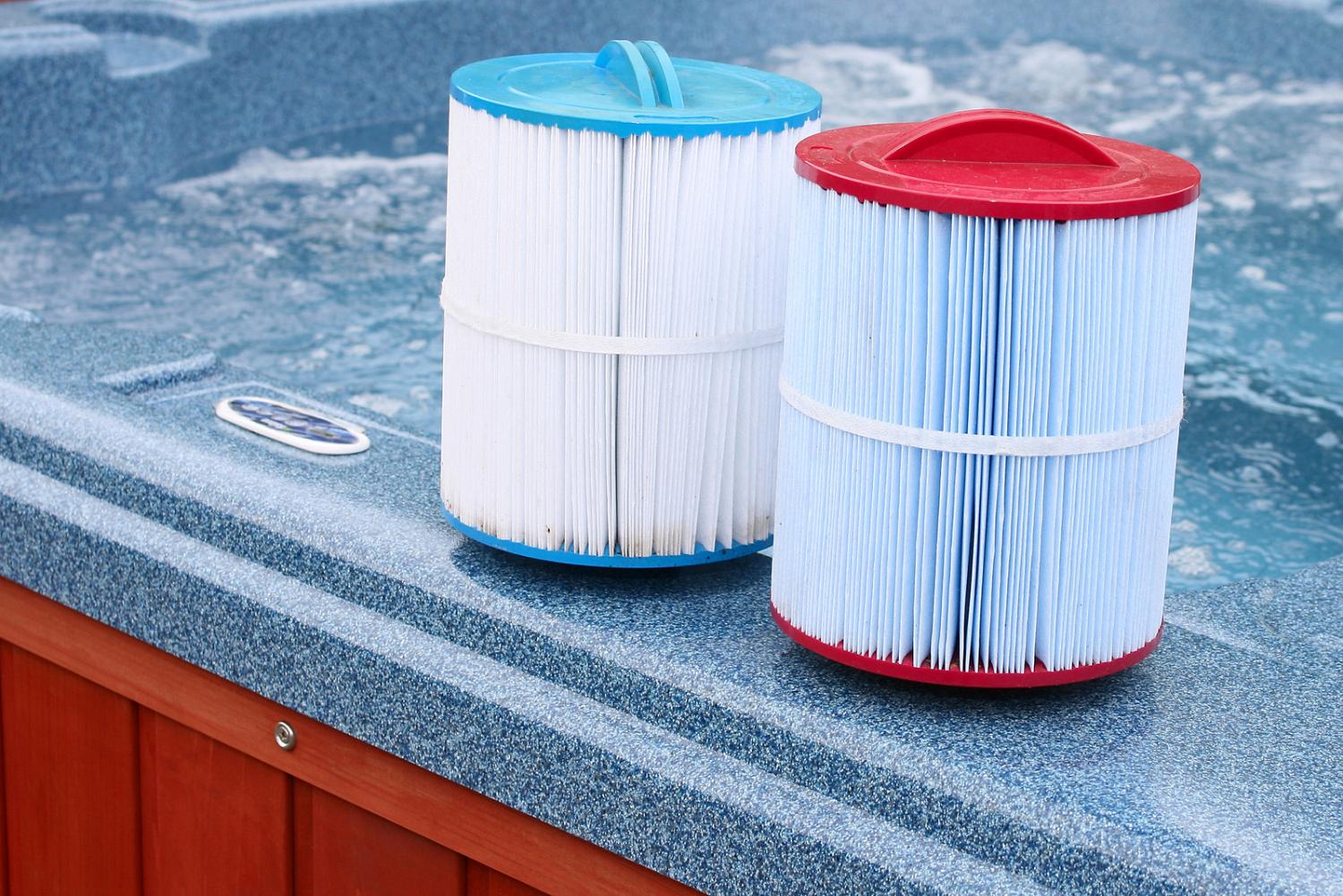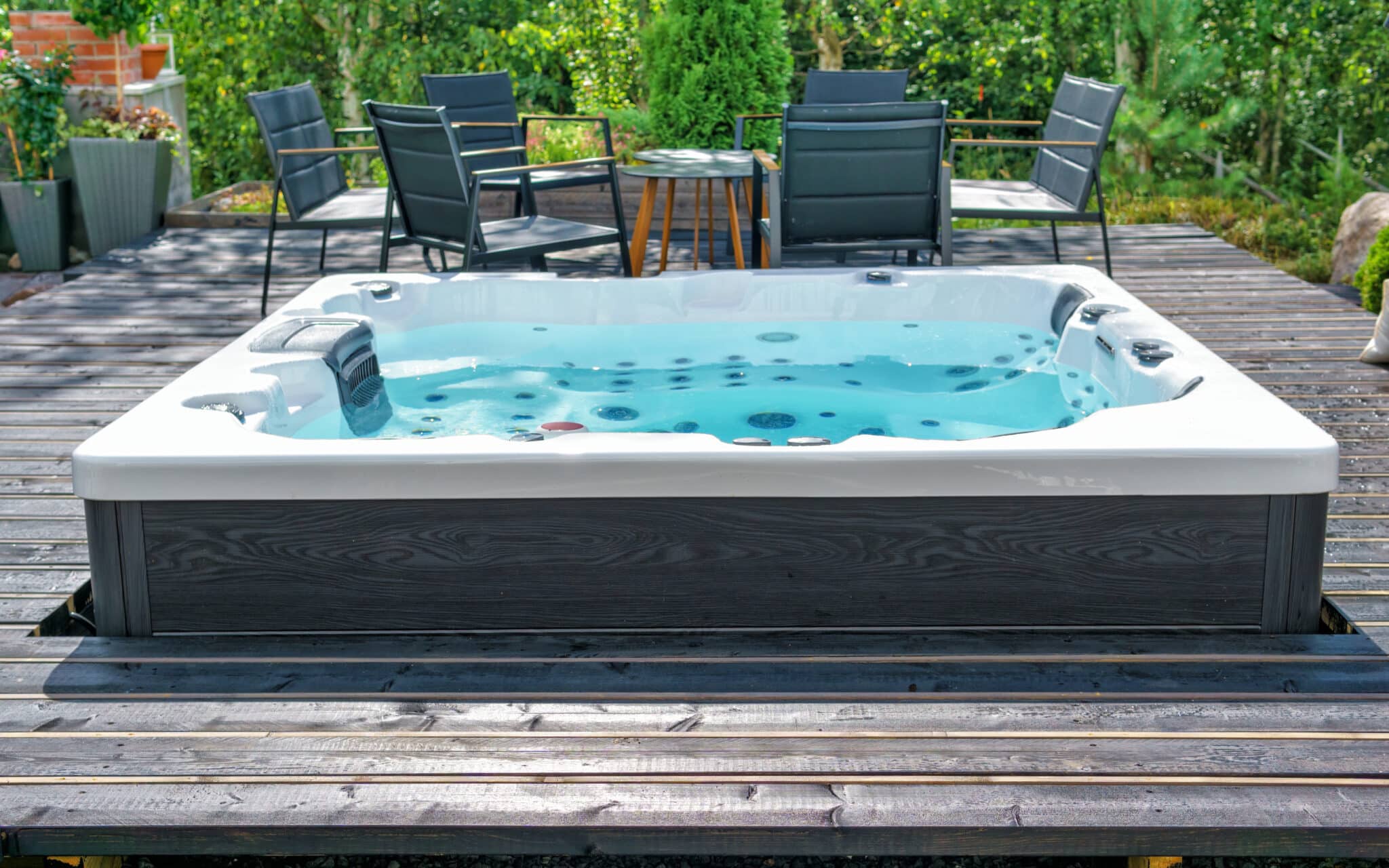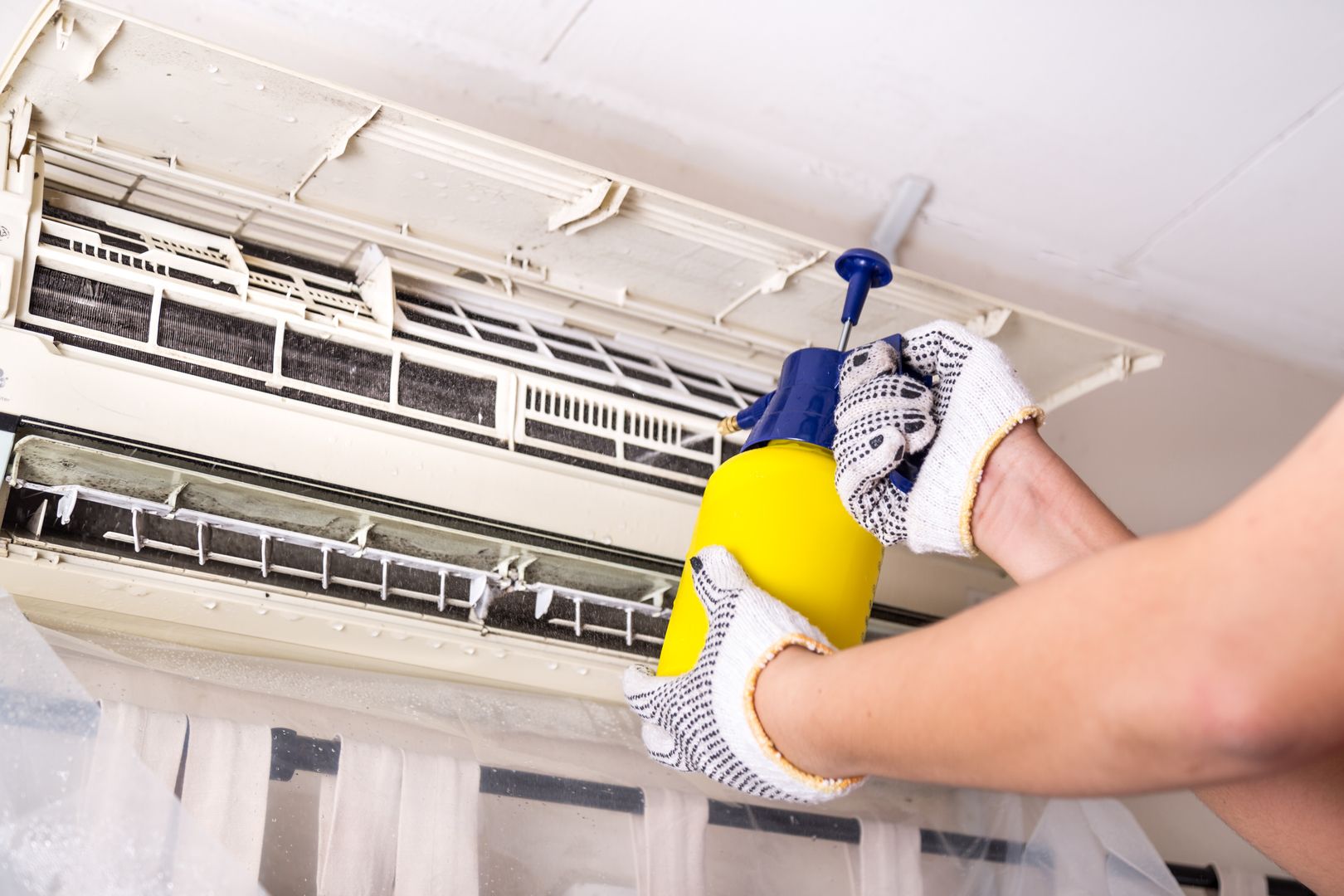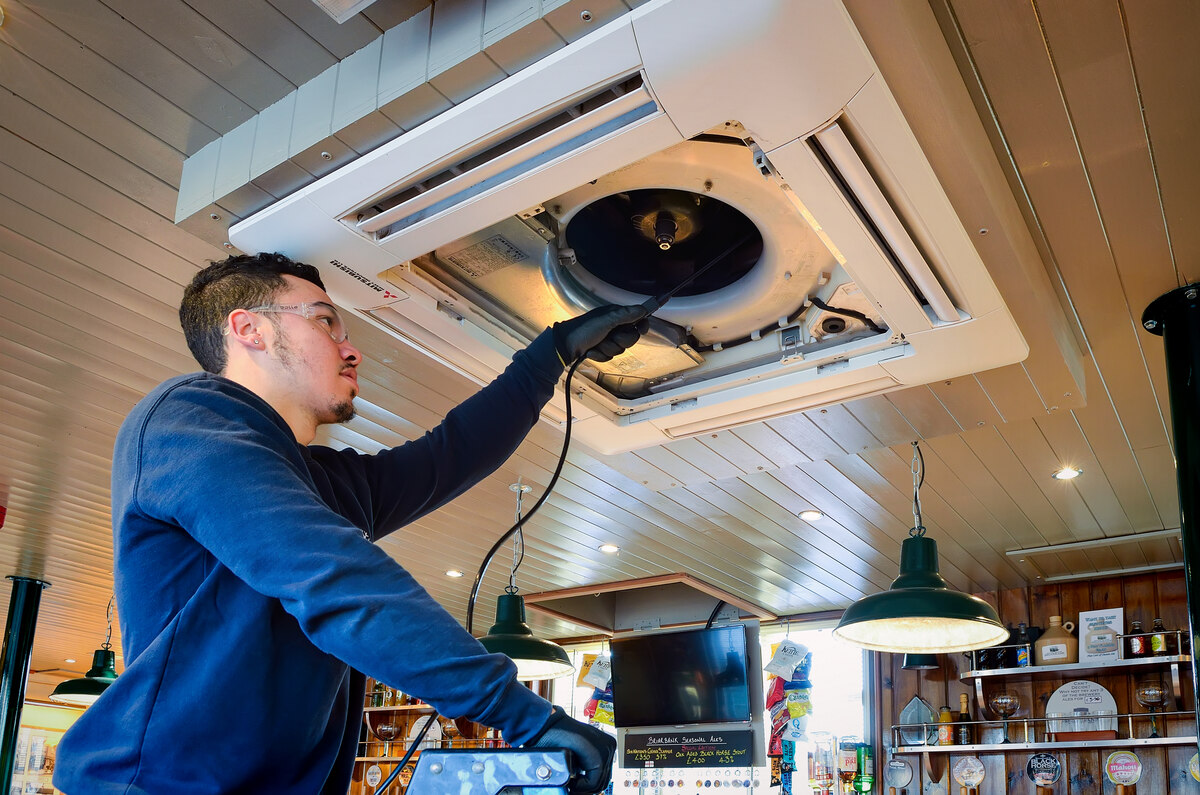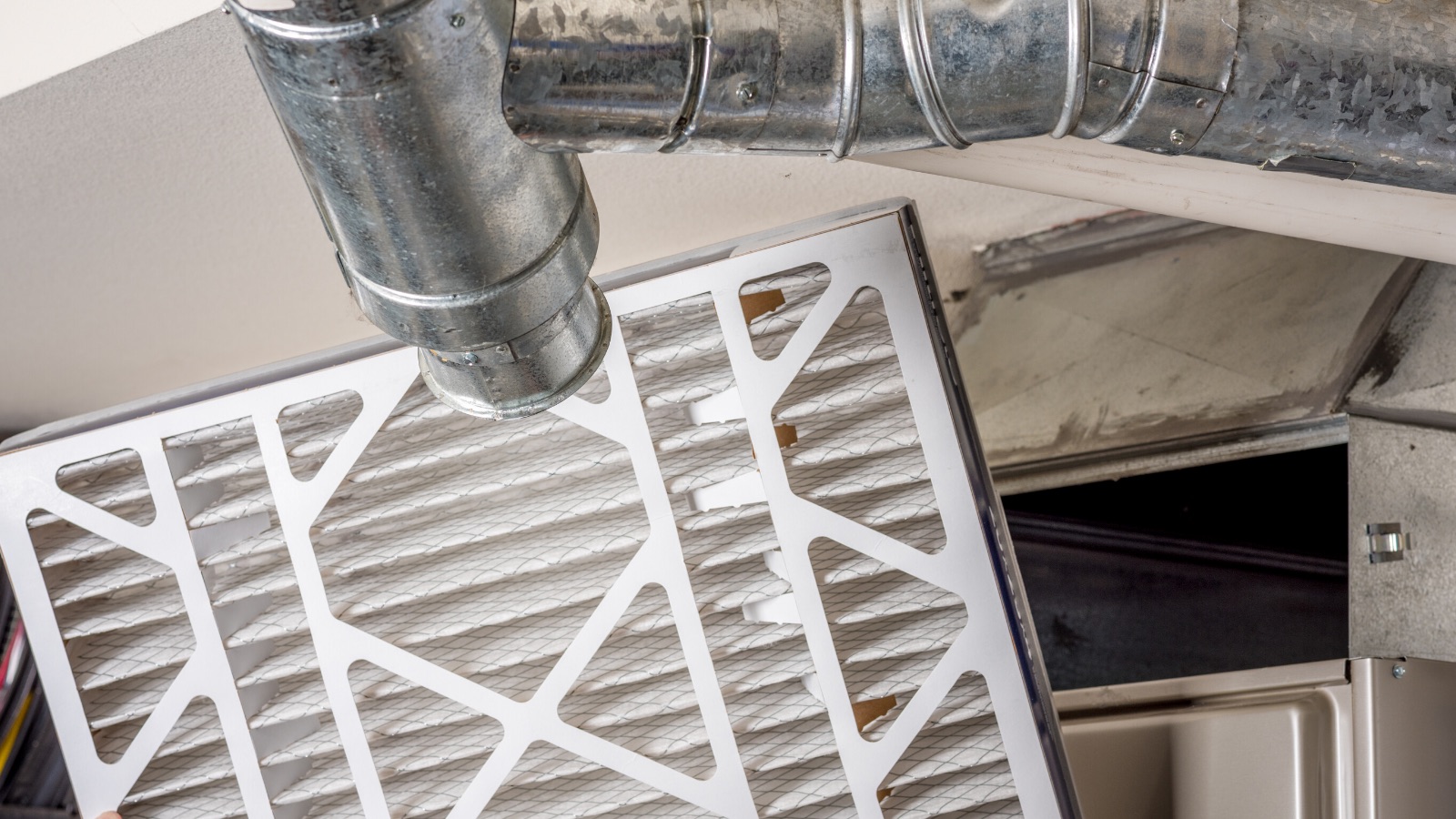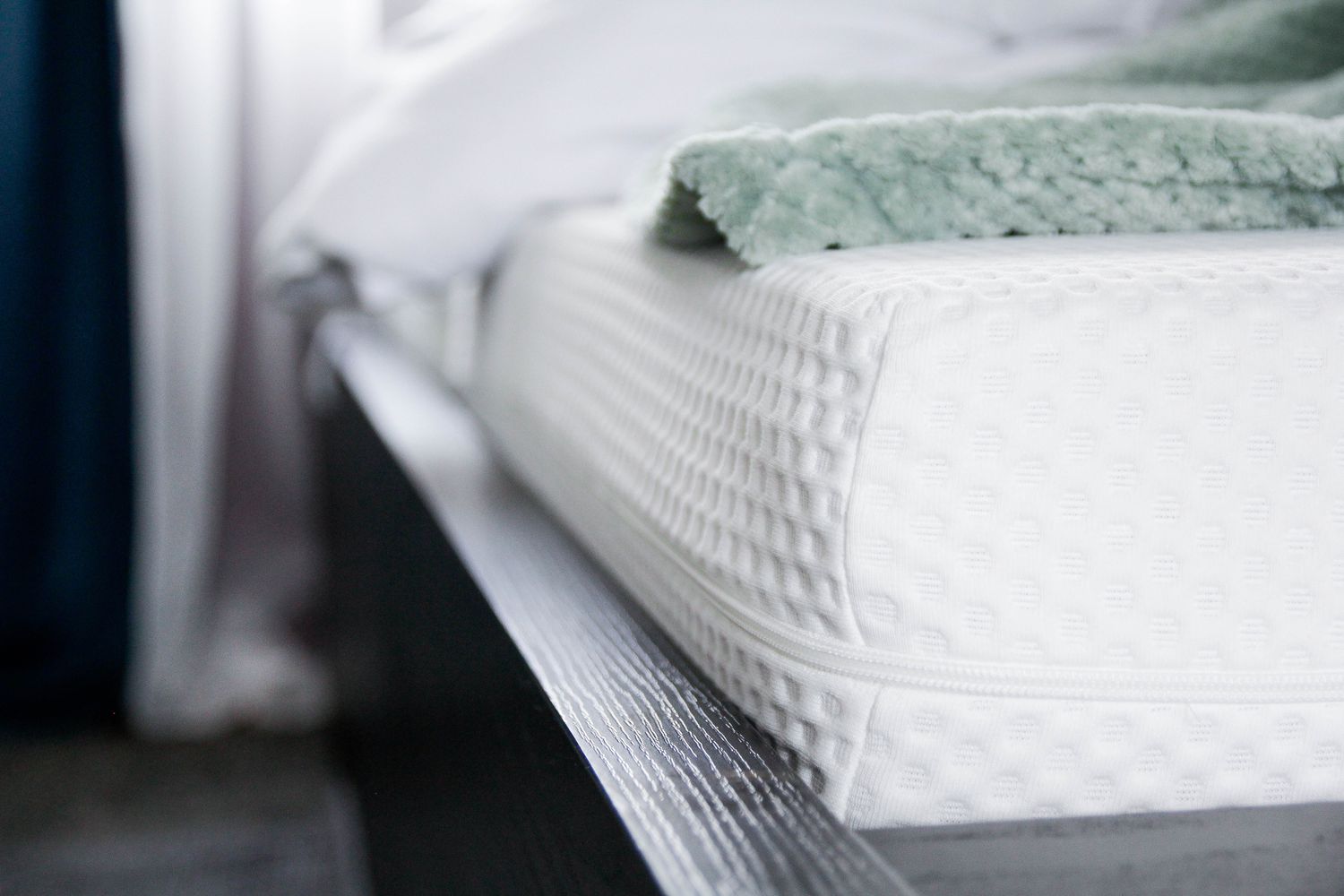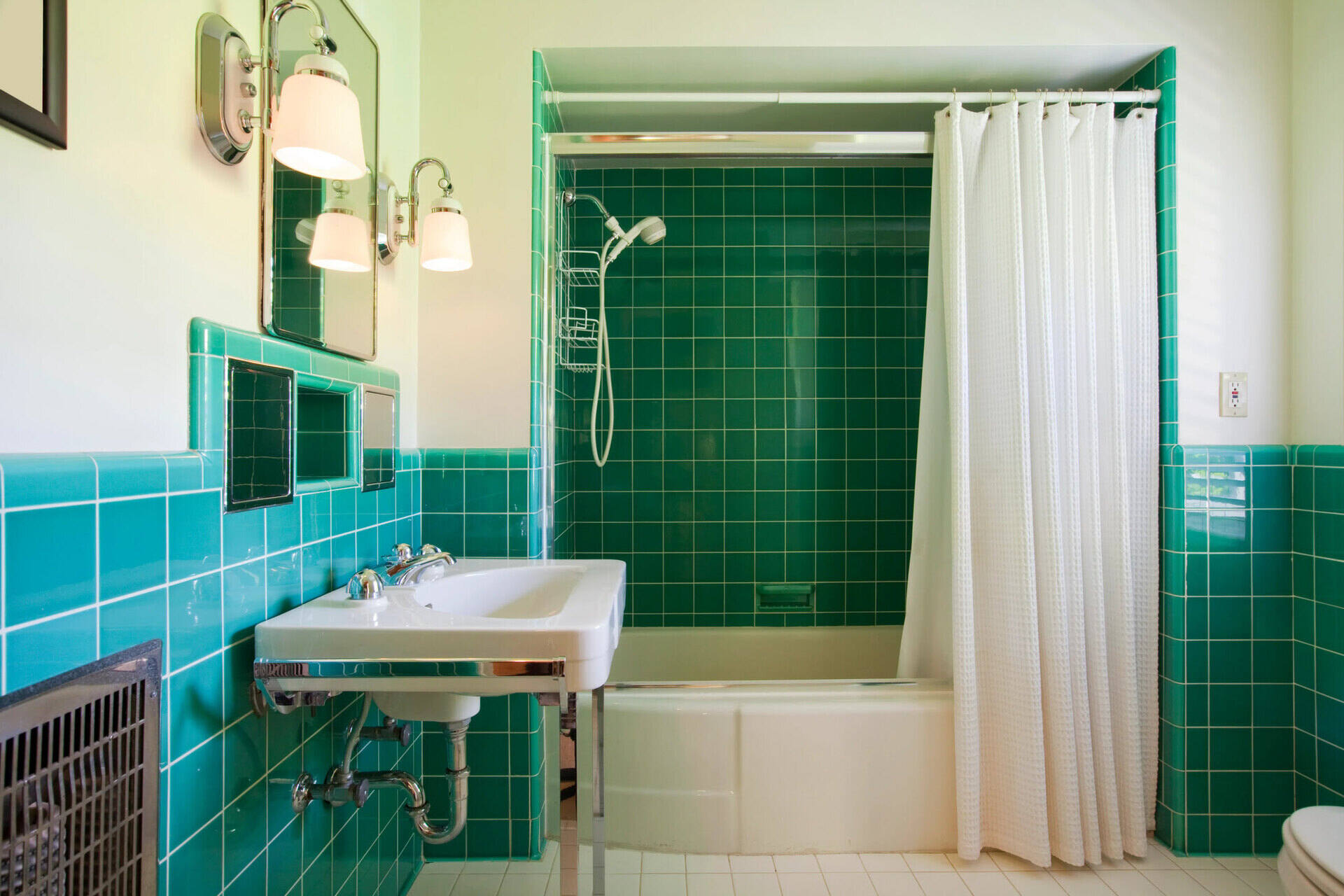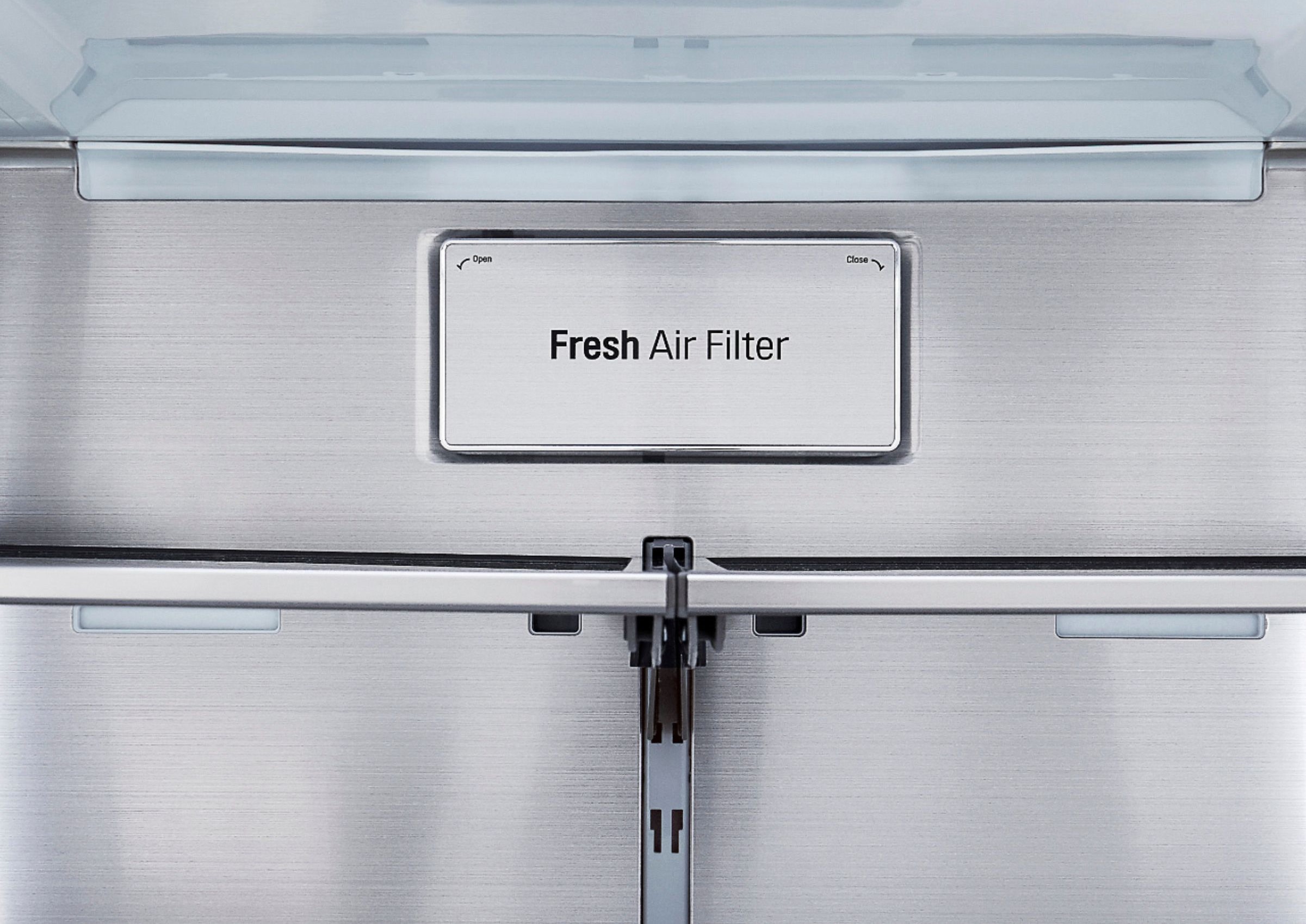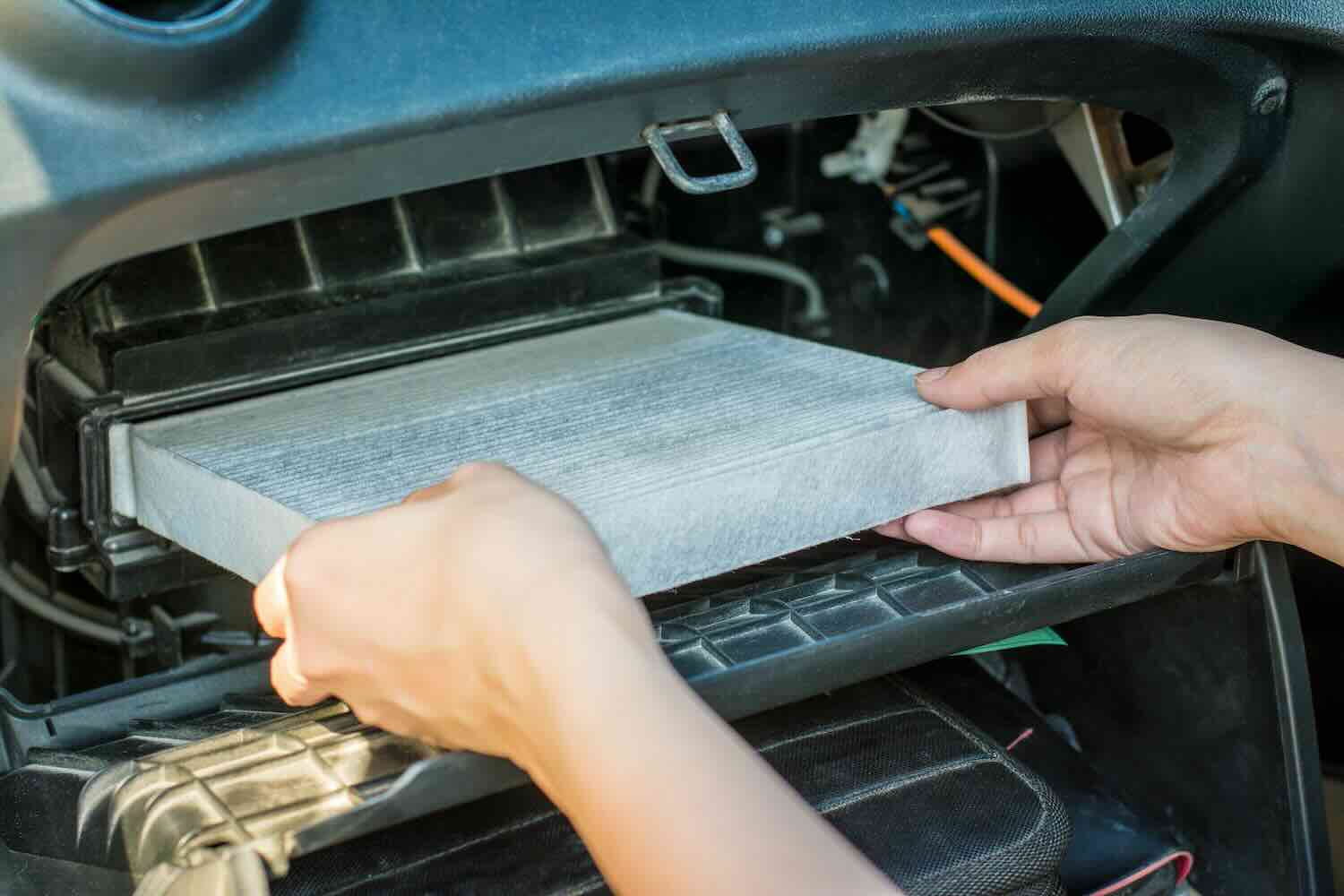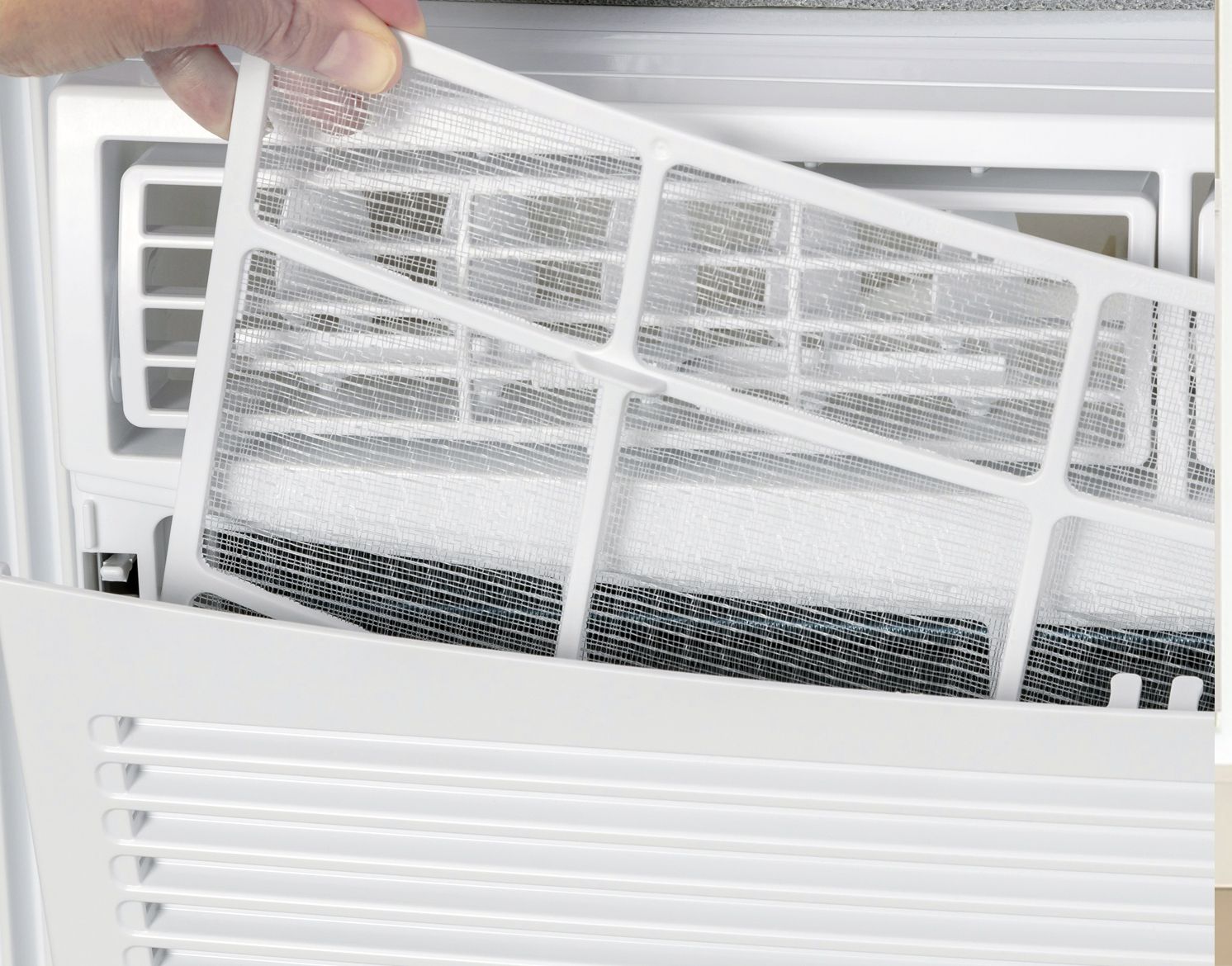Home>Home Maintenance>How Often Do You Change Air Conditioning Filters
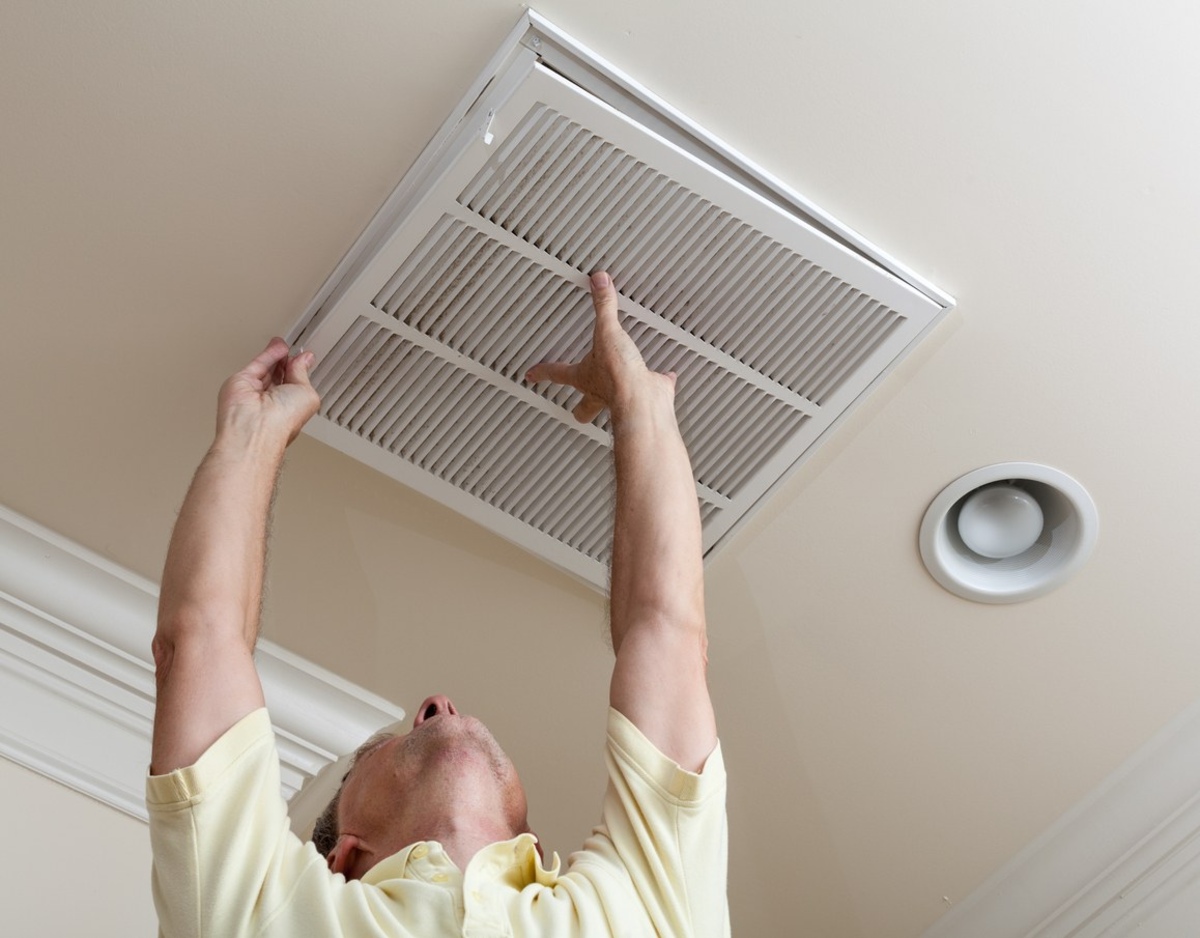

Home Maintenance
How Often Do You Change Air Conditioning Filters
Modified: March 6, 2024
Regularly changing your air conditioning filters is an essential part of home maintenance. Discover how often you should replace them to keep your home's air clean and your system running efficiently.
(Many of the links in this article redirect to a specific reviewed product. Your purchase of these products through affiliate links helps to generate commission for Storables.com, at no extra cost. Learn more)
Introduction
Welcome to the world of home maintenance where small tasks can make a big difference. One important aspect of maintaining a comfortable and efficient home is regular air conditioning filter replacement. While it may seem like a minor chore, changing your air conditioning filters can have a significant impact on your indoor air quality, energy efficiency, and overall well-being.
In this article, we will explore the importance of changing air conditioning filters, factors that affect filter replacement frequency, the regular maintenance schedule you should follow, signs that indicate the need for filter replacement, how to properly change your air conditioning filters, and the different types of filters available to you. We will also discuss the relationship between energy efficiency and air filter replacement, as it is an important consideration for both your pocket and the environment.
So, let’s dive in and discover how often you should change your air conditioning filters and why it’s an essential part of keeping your home in top shape!
Key Takeaways:
- Regularly changing air conditioning filters improves indoor air quality, reduces energy costs, and extends HVAC system lifespan, creating a healthier and more sustainable home environment.
- Factors like filter type, indoor air quality, and system usage influence how often air conditioning filters should be replaced, ensuring optimal performance and clean air for your home.
Read more: How Often Do You Change Air Purifier Filters
Importance of Changing Air Conditioning Filters
Changing your air conditioning filters regularly is crucial for maintaining a clean and healthy living environment. The filters play a vital role in trapping dust, allergens, pet dander, pollen, and other airborne particles, preventing them from circulating in your home. By regularly replacing these filters, you can significantly improve the quality of the air you breathe indoors.
Poor indoor air quality can lead to a range of health issues, especially for individuals with allergies or respiratory conditions. Dust, mold spores, and bacteria can accumulate in your air conditioning system if the filters are not replaced regularly, exacerbating asthma symptoms and causing respiratory irritations. By keeping your filters clean and functioning optimally, you can minimize the risk of these health issues.
Not only does changing your air conditioning filters contribute to better indoor air quality, but it also enhances the efficiency of your HVAC (Heating, Ventilation, and Air Conditioning) system. When the filters become clogged with dirt and debris, it restricts the airflow, forcing your system to work harder to maintain the desired temperature. This additional strain on the system not only reduces its efficiency but also leads to higher energy bills.
By regularly changing your filters, you can help your HVAC system operate optimally, ensuring effective and efficient cooling in the summer and heating in the winter. Furthermore, a well-functioning system can prolong its lifespan, saving you money on costly repairs or replacements down the line.
Another often overlooked aspect of changing air conditioning filters is the impact on overall home cleanliness. Clogged filters can lead to more dust and dirt buildup in your home, as the particles are unable to be effectively trapped. By regularly replacing the filters, you can reduce the amount of dust settling on surfaces, minimizing the need for frequent cleaning and improving the overall cleanliness of your home.
Therefore, changing your air conditioning filters regularly is not just a minor maintenance task; it is a critical step in improving indoor air quality, enhancing energy efficiency, prolonging the lifespan of your HVAC system, and promoting a cleaner living environment. With all these benefits in mind, let’s now explore the factors that influence the frequency of filter replacement.
Factors that Affect Filter Replacement Frequency
The frequency at which you should replace your air conditioning filters can vary depending on several factors. It’s important to consider these factors to ensure that you’re maintaining clean air and optimal system performance. Here are some key factors to keep in mind:
- Filter Type: The type of air conditioning filter you use can significantly impact how often you need to replace it. There are different types of filters available, ranging from basic fiberglass filters to high-efficiency filters like HEPA (High-Efficiency Particulate Air) filters. HEPA filters are more effective at trapping smaller particles but may need to be replaced more frequently due to their higher efficiency.
- Indoor Air Quality: If you live in an area with high levels of air pollution, dust, or allergens, your filters may clog up more quickly. Additionally, if you have pets that shed, smoke indoors, or have a household member with allergies or respiratory conditions, you may need to replace your filters more often to maintain good indoor air quality.
- System Usage: The frequency at which you use your air conditioning system can impact the rate at which your filters get dirty. If you use your system constantly or for extended periods, the filters will accumulate debris faster and may require more frequent replacement.
- Home Size: The size of your home plays a role in determining how frequently you should change your air conditioning filters. Larger homes tend to have more square footage to cover, which means more air circulating through the system and more particles being captured by the filters.
- Environmental Factors: Environmental factors, such as nearby construction, pollen seasons, or natural disasters like wildfires, can impact air quality and, consequently, the lifespan of your air conditioning filters. In these situations, it may be necessary to replace your filters more frequently to maintain optimal air quality.
- Filter Condition: It’s important to regularly inspect the condition of your air conditioning filters. If the filter appears visibly dirty or clogged, it’s a clear sign that it needs to be replaced. Additionally, filters with damaged frames or torn filter media should be replaced immediately, as they will no longer effectively capture particles.
Keep in mind that these factors are general guidelines, and the specific replacement frequency may vary depending on your unique circumstances. It’s recommended to refer to your HVAC system’s manufacturer guidelines and consult with a professional if you have any concerns or specific requirements. Now that we understand the factors that influence filter replacement frequency, let’s move on to discussing a regular maintenance schedule for air conditioning filters.
Regular Maintenance Schedule for Air Conditioning Filters
Establishing a regular maintenance schedule for your air conditioning filters is essential for ensuring optimal performance and air quality. While the frequency of filter replacement depends on various factors, here is a general guideline to help you create a maintenance routine:
- Check Monthly: It’s a good practice to inspect your air conditioning filters on a monthly basis. Take a look at the condition of the filters and assess if they are dirty or clogged. Depending on the factors mentioned earlier, they may need replacement at this point.
- Replace Every 1-3 Months: As a general rule of thumb, air conditioning filters should be replaced every 1 to 3 months. This time frame ensures that the filters are clean and functioning optimally. However, keep in mind that this can vary based on the factors specific to your home and environment. For example, if you have pets or live in an area with high pollution, you may need to replace them more frequently.
- Consider Seasons: It’s a good idea to pay extra attention to your air conditioning filters during seasonal changes. Spring and fall are known for increased allergens and pollen, so consider replacing your filters more frequently during these seasons to maintain good indoor air quality.
- Keep Track: To stay on top of your regular maintenance, it can be helpful to create a reminder system. You can set reminders on your phone, mark a calendar, or use a smart home system to track when it’s time to replace your filters. By having a system in place, you can ensure you don’t overlook this important task.
- Inspect for Damage: Apart from regular replacement, it’s important to periodically inspect your filters for any damage or wear. If you notice any tears, holes, or deformed frames, replace the filters immediately. Damaged filters will not effectively capture particles and can lead to compromised air quality.
Remember, these are general guidelines, and it’s always a good idea to refer to your HVAC system’s manufacturer guidelines for specific recommendations. Additionally, if you notice a decline in air quality or efficiency between regular maintenance intervals, it’s recommended to replace your filters more frequently.
By following a regular maintenance schedule for your air conditioning filters, you can ensure that your system operates efficiently and effectively, maintaining clean and healthy indoor air. In the next section, we will discuss the signs that indicate the need for filter replacement, so you can stay ahead of any potential issues.
Signs that Indicate the Need for Filter Replacement
Knowing the signs that indicate the need for air conditioning filter replacement is crucial for maintaining good indoor air quality and optimal system performance. Here are some common indicators that it’s time to replace your filters:
- Visible Dirt and Dust: If you notice a visible buildup of dirt and dust on the surface of your air conditioning filter, it’s a clear sign that it’s time for a replacement. The accumulation of particles on the filter indicates that it has reached its maximum capacity and is no longer effectively capturing pollutants.
- Allergy Symptoms: If you or your family members experience an increase in allergy symptoms, such as sneezing, coughing, or itchy eyes, it could be a sign that your air filters are not effectively trapping allergens. Pollen, dust mites, pet dander, and other allergens may be circulating in your home, indicating the need for a fresh filter.
- Reduced Airflow: Observe the airflow from your air conditioning vents. If you notice weak or reduced airflow, it may be due to a clogged filter. A dirty filter restricts the airflow and forces your HVAC system to work harder, leading to reduced airflow and less efficient cooling or heating.
- Increased Energy Bills: If you notice a sudden increase in your energy bills with no apparent reason, it could be an indication that your air conditioning system is working harder than it should. A clogged filter causes your system to consume more energy to maintain the desired temperature, resulting in higher energy costs.
- Unpleasant Odors: A musty or stale smell in your home can be a sign that your air filter is dirty and needs replacement. Over time, the trapped particles on the filter can emit odors and impact the overall freshness of your indoor air. Changing the filter can help eliminate these odors and improve the scent in your home.
- Noise from the HVAC System: If you hear unusual noises, such as rattling or whistling, coming from your HVAC system, it could be due to a clogged filter. As the air struggles to pass through the dirty filter, it can cause vibrations and abnormal sounds. Replacing the filter can help resolve these noises and restore smooth airflow.
It’s important to note that these signs may vary depending on your specific HVAC system and the environmental factors in your home. Regularly inspecting your filters and being attentive to changes in air quality, airflow, and energy usage can help you identify when it’s time for a filter replacement.
Now that we understand the signs of filter replacement, let’s move on to the practical steps of changing your air conditioning filters.
It is recommended to change air conditioning filters every 1-3 months, depending on factors like pets, allergies, and air quality. Regularly changing filters can improve air quality and efficiency.
Read more: How Often Should You Change HVAC Air Filter
How to Change Air Conditioning Filters
Changing your air conditioning filters is a simple task that can be done in just a few steps. Here’s a step-by-step guide to help you successfully replace your filters:
- Turn Off Your HVAC System: Before you begin, ensure that your HVAC system is turned off. This will prevent the system from pulling in any debris or dust during the filter replacement process.
- Locate the Air Filter: Identify the location of your air conditioning filter. It is typically found in the return air duct or on the blower compartment of your HVAC system. The filter may be behind a removable grille or access panel. Consult your HVAC system’s manual if you’re unsure about the specific location.
- Remove the Old Filter: Once you’ve located the filter, carefully remove the old filter from its housing. Pay attention to how the filter is installed so that you can easily insert the new one later. You may need to slide the filter out or unhinge any latches or clips holding it in place.
- Inspect the Filter Slot: Take a moment to inspect the filter slot or housing. Clean up any debris or dust that may have accumulated. Wipe down the area with a damp cloth if necessary to ensure a clean surface for the new filter.
- Install the New Filter: Take a new air conditioning filter that matches the size and type of the old one. Make sure that the arrow on the filter indicating the direction of airflow is facing towards the blower or air handler. Carefully slide the filter into the designated slot, ensuring it fits securely.
- Secure the Filter: If your filter requires it, secure it in place using the provided latches, clips, or fasteners. Double-check that the filter is firmly and evenly in place.
- Turn On Your HVAC System: Once the new filter is installed, you can turn your HVAC system back on. Give it a few moments to start circulating the newly filtered air throughout your home.
- Set Reminders for Future Replacement: Mark your calendar or set a reminder for the next scheduled filter replacement. This will help you stay on track with regular maintenance.
Keep in mind that some HVAC systems may have additional steps or unique instructions for filter replacement. Always refer to your system’s manual or consult a professional if you have any doubts or questions.
Now that you know how to change your air conditioning filters, let’s explore the different types of filters available to you.
Different Types of Air Conditioning Filters
When it comes to air conditioning filters, there are various types available, each with its own benefits and purposes. Here are some commonly used types of air conditioning filters:
- Fiberglass Filters: Fiberglass filters are the most basic and cost-effective option. They are made of layered fiberglass fibers and are designed to capture large particles like dust and lint. While they are not as effective at trapping smaller particles, they provide some level of filtration and can be replaced frequently without breaking the bank.
- Pleated Filters: Pleated filters offer better filtration than fiberglass filters. They are made of polyester or cotton and have pleated folds, which increase the surface area for trapping particles. Pleated filters are available in different levels of filtration efficiency, offering options for capturing smaller particles, including allergens and pet dander. However, they may need to be replaced more frequently due to their increased efficiency.
- Reusable Filters: Reusable filters, also known as washable filters, are made of materials like aluminum or foam. The benefit of these filters is that they can be washed, allowing for multiple uses. They offer moderate filtration and can be a more eco-friendly option since they don’t need frequent replacements. However, it’s important to clean and dry them thoroughly before reinstalling to prevent mold or bacteria growth.
- HEPA Filters: HEPA (High-Efficiency Particulate Air) filters provide the highest level of filtration efficiency. They can capture up to 99.97% of particles as small as 0.3 microns. HEPA filters are highly effective at trapping allergens, mold spores, bacteria, and other fine particles. However, their high efficiency also means they may need more frequent replacement due to quicker clogging. HEPA filters are often used in environments where air quality is critical, such as hospitals or cleanrooms.
- Activated Carbon Filters: Activated carbon filters are designed to absorb and remove odors, gases, and volatile organic compounds (VOCs) from the air. They are commonly used in air purifiers and HVAC systems to improve indoor air quality. Activated carbon filters work by trapping and preventing these harmful substances from recirculating in your home. They are often combined with other types of filters to provide comprehensive filtration.
It’s important to choose the air conditioning filter that best suits your needs and home environment. Consider factors such as the level of filtration required, the presence of allergies or respiratory conditions, and the specific recommendations of your HVAC system’s manufacturer.
Now that we’ve explored the different types of air conditioning filters, let’s discuss the relationship between energy efficiency and filter replacement.
Energy Efficiency and Air Filter Replacement
Maintaining a clean and efficient HVAC system is not only beneficial for air quality but also for energy efficiency. The condition of your air filters plays a significant role in the overall energy efficiency of your heating and cooling system. Here’s how air filter replacement impacts energy efficiency:
Improved Airflow: A clean and properly functioning air filter allows for better airflow throughout your HVAC system. When the filter is dirty and clogged, it restricts the airflow, causing the system to work harder to maintain the desired temperature. This increased workload leads to higher energy consumption and reduces the overall efficiency of your HVAC system. By regularly replacing the air filter, you ensure proper airflow and minimize energy waste.
Reduced Strain on the System: When the air filter becomes clogged, the blower motor in your HVAC system has to work harder to pull air through the filter. This additional strain on the system not only increases energy consumption but also puts unnecessary stress on the components. Over time, this strain can lead to increased wear and tear, potentially resulting in the need for costly repairs or even premature system failure. Replacing the air filter regularly relieves the strain on the system and helps maintain its efficiency and longevity.
Savings on Energy Bills: A dirty air filter increases energy consumption, which directly impacts your energy bills. When the HVAC system works harder to compensate for poor airflow, it uses more electricity or fuel, resulting in higher monthly expenses. By consistently replacing your air filters according to the recommended schedule, you can keep your energy bills in check and reduce your overall carbon footprint.
Optimal Cooling and Heating Performance: A clean air filter ensures that your HVAC system can cool or heat your home effectively and efficiently. When the filter is clogged, it hinders the system’s ability to regulate the temperature, leading to uneven cooling or heating throughout your home. This not only affects your comfort but also forces the system to run for longer periods to reach the desired temperature. With a clean air filter in place, your HVAC system can operate at its full potential, providing consistent and efficient heating and cooling performance.
Regularly replacing your air conditioning filters not only improves air quality and system performance but also has a direct impact on energy efficiency. By ensuring proper airflow, reducing strain on the system, and optimizing cooling and heating performance, you can reduce energy consumption, lower utility bills, and contribute to a more sustainable home environment.
Now that we’ve explored the relationship between energy efficiency and air filter replacement, let’s summarize the key takeaways of this article.
Conclusion
Regularly changing your air conditioning filters is a simple yet important task that can have a significant impact on your home’s air quality, energy efficiency, and overall comfort. By effectively capturing dust, allergens, and pollutants, clean filters help keep your indoor air fresh and free from harmful particles that can trigger allergies or respiratory issues.
Factors such as filter type, indoor air quality, system usage, and home size can influence how often you should replace your air conditioning filters. It’s essential to establish a regular maintenance schedule and inspect the filters monthly to determine when they need replacement.
Signs like visible dirt and dust, allergy symptoms, reduced airflow, increased energy bills, unpleasant odors, and strange noises from your HVAC system can indicate that it’s time to change your filters.
When replacing your air conditioning filters, remember to turn off your HVAC system, locate the filter, carefully remove the old one, inspect the filter slot, install the new filter correctly, secure it if necessary, and then turn your system back on. Setting reminders for future replacements will help you maintain a consistent and effective maintenance routine.
There are different types of air conditioning filters available, including fiberglass, pleated, reusable, HEPA, and activated carbon filters. Each type offers specific benefits, so choose the one that suits your needs and environment best.
Replacing your air conditioning filters not only improves air quality but also enhances energy efficiency. Clean filters improve airflow, reduce strain on the system, save on energy bills, and ensure optimal cooling and heating performance.
By prioritizing regular air conditioning filter replacements, you can create a healthier living environment, extend the lifespan of your HVAC system, save on energy costs, and contribute to a greener, more sustainable future.
So, take a proactive approach to home maintenance and make changing your air conditioning filters a top priority. Your health, comfort, and wallet will thank you!
Frequently Asked Questions about How Often Do You Change Air Conditioning Filters
Was this page helpful?
At Storables.com, we guarantee accurate and reliable information. Our content, validated by Expert Board Contributors, is crafted following stringent Editorial Policies. We're committed to providing you with well-researched, expert-backed insights for all your informational needs.
